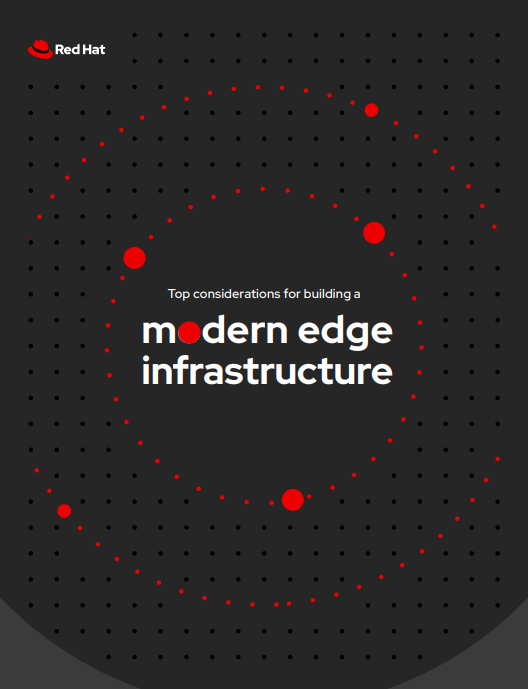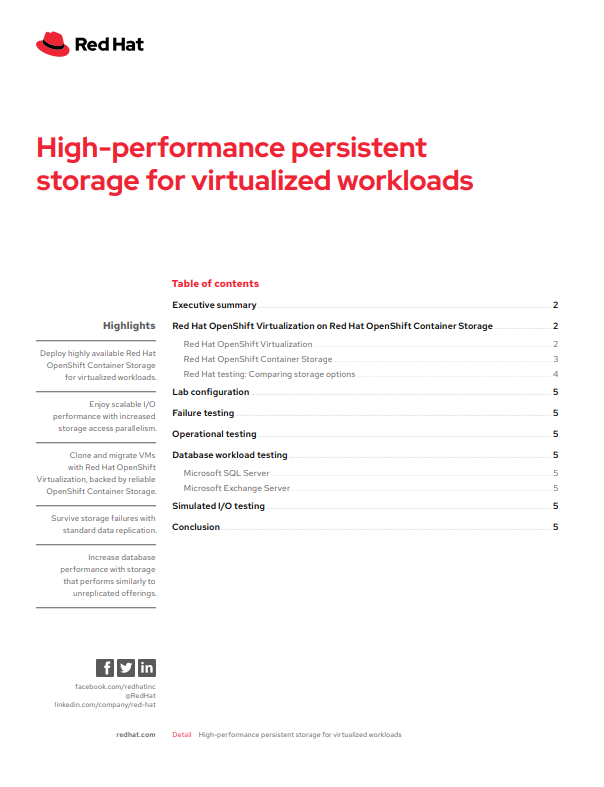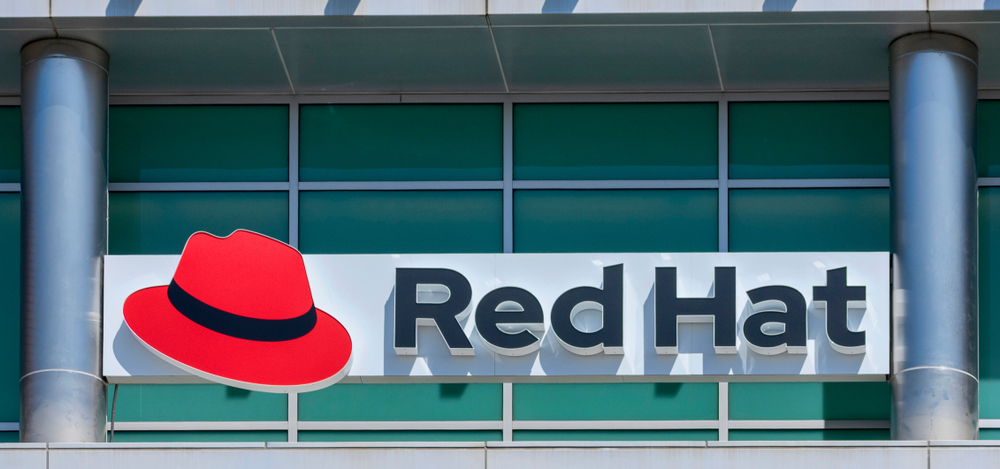Red Hat launches OpenShift Platform Plus alongside new managed cloud services
A tertiary OpenShift tier comes alongside three apps for businesses to build on their Kubernetes-based hybrid cloud strategy


Red Hat has launched an advanced tier of its OpenShift container application platform, with added tools designed to offer a complete Kubernetes stack out-of-the-box. This is in addition to launching three new managed cloud services.
Red Hat’s OpenShift Kubernetes Engine is the foundational layer of OpenShift, allowing customers to run containers across hybrid cloud deployments on the Red Hat Enterprise Linux (RHEL) OS. The OpenShift Container Platform adds developer and operations services, as well as advanced features for app development and modernisation.
The tertiary tier, OpenShift Platform Plus, builds on the OpenShift Container Platform to provide advanced security features, ‘day two’ management capabilities and a global container registry. It brings together all the aspects needed to build, deploy and run any application where OpenShift software runs, Red Hat claims.
Its launch has come alongside a set of managed cloud services tightly integrated with the Red Hat OpenShift platform to help organisations build, deploy and manage cloud-native apps across hybrid configurations.
Red Hat OpenShift Streams for Apache Kafka, Red Hat OpenShift Data Science and OpenShift API Management are being launched to ease the complexities of modern IT environments, while not compromising on productivity.
OpenShift Streams for Apache Kafka is designed to make it easier for customers to create, discover and connect to real-time data streams regardless of where they’re based.
OpenShift Data Science also offers organisations a way to develop, train and test machine learning models and export in a container-ready format.
Sign up today and you will receive a free copy of our Future Focus 2025 report - the leading guidance on AI, cybersecurity and other IT challenges as per 700+ senior executives
OpenShift API management, meanwhile, reduces the operational cost of delivering API-first, microservices-based apps.
“To take full advantage of the open hybrid cloud, IT leaders need to be able to use the technologies that they need in whatever IT footprint makes sense for them,” said Red Hat’s executive vice president for products and technologies, Matt Hicks, at Red Hat Summit 2021.
“Red Hat managed cloud services effectively drops many barriers that have kept organisations from harnessing the full potential of the hybrid cloud. We believe eliminating the traditional overhead of managing cloud-scale infrastructure will spark a genesis moment for customers and open up a future of possibility where those barriers once stood.”
Red Hat OpenShift Platform Plus adds Advanced Cluster Security for Kubernetes, a standalone product developed from the firm’s recent acquisition of StackRox. This offers built-in Kubernetes-native security tools to safeguard infrastructure and management workloads through an app’s development cycle. This is in addition to Advanced Cluster Management for Kubernetes and Red Hat Quay. The former brings end-to-end visibility and control of clusters, while the latter provides a secure registry for a consistent build pipeline.
RELATED RESOURCE

“We believe this version addresses the need for a hybrid cloud solution that we hear from our customers, and we’ll be working lead with customer-managed OpenShift across data centre, public and private cloud,” said senior vice president for cloud platforms at Red Hat, Ashesh Badani.
“This version also becomes a landing point for additional capabilities, and we have worked hard to reduce costs compared to purchasing any of these capabilities a la carte, and we will continue to offer all three versions so customers can best decide what’s appropriate for their use case, and subscribe to the best available version.”
One of the key appeals is it grants businesses system-level data collection and analysis, as well as more than 60 security policies out-of-the-box that can be enforced from the time apps are built to when they’re deployed.
RedHat OpenShift Platform Plus also lets organisations take a DevSecOps approach to security by integrating declarative security into developer tooling and workflows.
The three managed services, being launched in the coming months, build on Red Hat’s existing suite of OpenShift apps, allowing customers and partners to build an open Kubernetes-based hybrid cloud strategy.
Based on the open source Apache Kafka project, OpenShift Streams for Apache Kafka allows dev teams to more easily incorporate streaming data into their apps. Real-time data is critical to these apps, and provide more immediate digital experiences wherever a service is delivered.
OpenShift Data Science builds on Red Hat’s Open Data Hub project and provides faster development, training and testing of machine learning models without the expected infrastructure demands.
Finally, the OpenShift API Management managed cloud service offers full API management to Red Hat Oepnshift Dedicated, as well as OpenShift on AWS. This combines managed operations with native OpenShift integration to let organisations focus on the innovation side of things as opposed to the infrastructure.
Red Hat OpenShift API Management also enables customers to build their own API management program, with the capabilities to control access, monitor usage, share common APIs and evolve their overall application landscape through a single DevOps pipeline.

Keumars Afifi-Sabet is a writer and editor that specialises in public sector, cyber security, and cloud computing. He first joined ITPro as a staff writer in April 2018 and eventually became its Features Editor. Although a regular contributor to other tech sites in the past, these days you will find Keumars on LiveScience, where he runs its Technology section.
-
 UK enterprises lead the way on containerization, but skills gaps could hinder progress
UK enterprises lead the way on containerization, but skills gaps could hinder progressNews The UK risks fumbling its lead on cloud native deployments due to skills issues, according to Nutanix’s Enterprise Cloud Index (ECI) survey.
-
 Kubernetes misconfiguration unknowingly exposed data of Fortune 500 firm, hundreds more
Kubernetes misconfiguration unknowingly exposed data of Fortune 500 firm, hundreds moreNews The Kubernetes misconfiguration could have had serious ramifications for the company
-
 Is the Kubernetes security deficit widening?
Is the Kubernetes security deficit widening?In-Depth Kubernetes and containerization are surging in popularity but organizations are worrying over unaddressed cyber security risks
-
 Top considerations for building a modern edge infrastructure
Top considerations for building a modern edge infrastructureWhitepaper Extend hybrid cloud capabilities all the way to data sources and end users
-
 High-performance persistent storage for virtualised workloads
High-performance persistent storage for virtualised workloadsWhitepaper Evaluating the performance of Red Hat OpenShift Container Storage
-
 Red Hat lambasts "unusual" University of Minnesota research approach in Linux feud
Red Hat lambasts "unusual" University of Minnesota research approach in Linux feudNews Establishing trust and transparency is key to open source research that actually matters, the company claims
-
 Red Hat bolsters Edge strategy with major RHEL platform update
Red Hat bolsters Edge strategy with major RHEL platform updateNews Red Hat Enterprise Linux 8.4 brings container deployment and management tools scaled around edge requirements
-
 Amazon and Red Hat partner on bringing OpenShift to AWS
Amazon and Red Hat partner on bringing OpenShift to AWSNews The ROSA managed service makes it easier to build, scale and managed Kubernetes clusters on AWS

